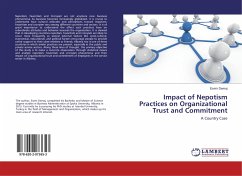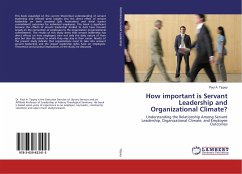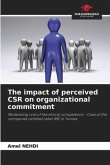Nepotism, Favoritism and Cronyism are not anymore new business phenomena. As business becomes increasingly globalized, it is crucial to understand how cultural attitudes and perceptions toward nepotism, favoritism and cronyism vary among different countries and sectors. It is of great importance to understand the effect such practices have on subordinate attitudes and behavior towards the organization. It is claimed that in developing countries nepotism, favoritism and cronyism are likely to occur more frequently as several external factors like socio-cultural, economical, educational, and political factors encourage people to provide unfair support to their close relatives or friends. Albania too is one of these countries in which similar practices are present, especially in the public and private service sectors. Along these lines of thought, the primary objective of this study is to make a concrete observation through statistical means and analyze nepotism, favoritism and cronyism phenomena and their impact on organizational trust and commitment of employees in the service sector in Albania.








